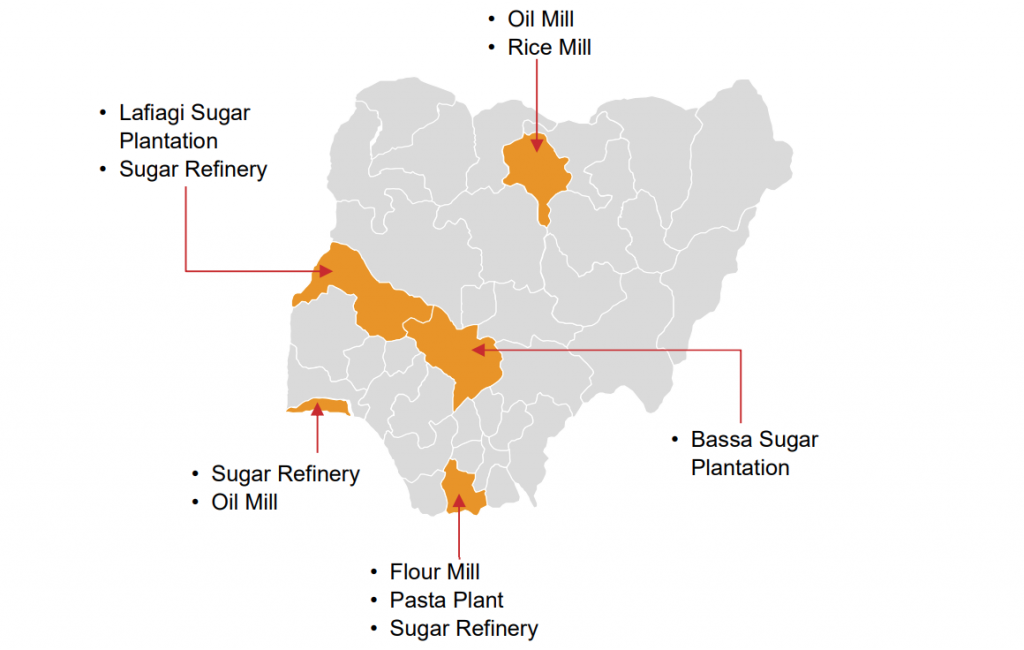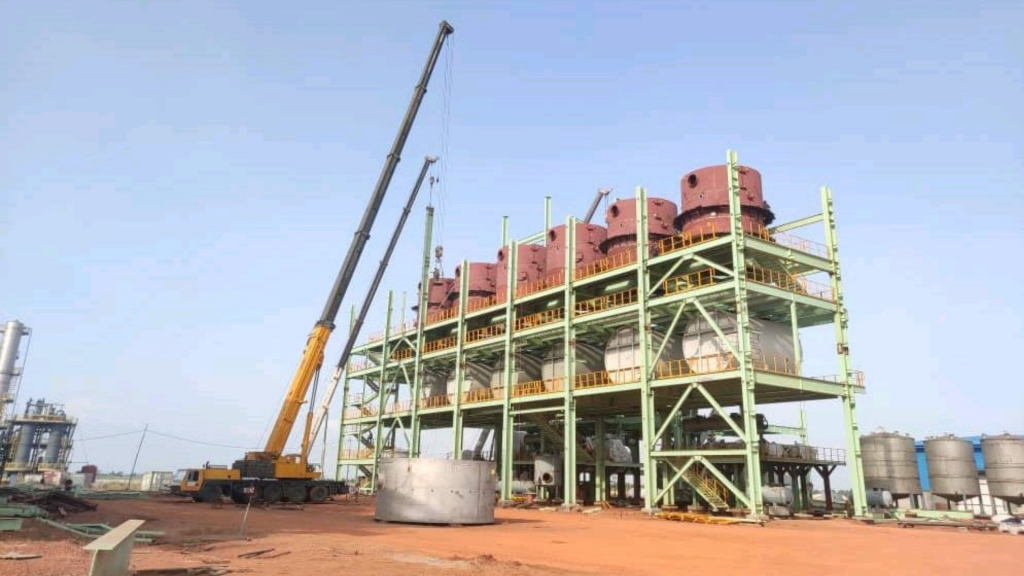Nigerian capital markets started 2022 with an injection of NGN 720 bn ($1.8bn) following the listing of BUA Foods on the main board of the Nigerian Stock Exchange (NSE). The new company is the result of the consolidation of several of Abdulsamadu Rabiu’s businesses under BUA International, a conglomerate he founded in 1988.
While BUA Cement listed in January 2020, several of the group’s other verticals remained unstructured, including sugar refining and plantations, rice, flour milling & pasta production, oil & gas, construction, real estate and logistics.
With BUA Foods, Rabiu is betting on Nigeria’s agriculture and fast-moving consumer goods (FMCG) market by consolidating its sugar, rice, flour, pasta and edible oils business into one single entity. BUA Foods combines assets worth almost NGN 650 bn and had generated over NGN 300bn from January to November last year, with a net profit of almost NGN 80 bn.

Some of the country’s best institutions were mobilized on the listing operation, including Udo Udoma & Belo-Osagie as solicitors, Stanbic IBTC Capital as lead financial adviser, Rand Merchant Bank Nigeria and UCML Capital as joint financial advisers, APT Securities and Funds and CardinalStone Securities as joint stockbrokers.
For investors, BUA Foods offers an interesting and diversified exposure to Nigeria’s FMCG market, expected to grow on the back of strong demographics and a projected population of over 260m by 2030.
However, for Rabiu and the entire BUA Group, the challenge is now on navigating the country’s sluggish economic recovery that has left consumer spending at very low levels on the back of historic inflation and rising poverty.
In this context, BUA Foods’ confidence comes from its investment into some of the country’s most basic and needed goods. Despite a weak consumer disposable income and high poverty rates, the case for the growth of Nigeria’s consumer goods industry remains compelling. This is notably the case for staple foods such as bread, pasta, rice and cereals where growth is modest but positive even in the short-term.
BUA Foods also has policy on its side. Through the Central Bank of Nigeria (CBN), the government has constantly sought to boost local output by restricting access to foreign exchange for dozens of imported items. These notably include food and agricultural products such as rice, palm oil, vegetable oil, and margarine – precisely the ones the company is investing in.
Betting on import-substitution with sugar
In sugar, BUA Foods now gathers the Apapa and Port Harcourt sugar refineries with a total refining capacity of 1.5 million metric tonnes per annum (mtpa), along with 70,000 ha of plantations in the states of Kogi (Bassa Sugar Co.) and Kwara (LASUCO Sugar Co.). With such assets, Rabiu wants to be part of the execution of the Nigerian Sugar Master Plan (NSMP) that seeks to cut sugar imports and grow local output.
BUA Foods’ new sugar division is notably expected to commission this year a new 220,000 tonnes per annum (tpa) sugar refinery on its LASUCO plantation in Lafiagi (Kwara) with a daily crushing capacity of 10,000 tonnes of cane per day (tcd).
The refinery will also be able to produce 20m litres of ethanol a year, and 32 MW of electricity from bagasse, making it Nigeria’s most integrated sugar complex. The project received a $200m boost from the Africa Finance Corporation last year, and remains one of Nigeria’s most ambitious and vertically-integrated facility.

Positioned for long-term growth in flour
In flour, BUA Foods will need to operate in a market where demand has been heavily impacted by the Covid-19 pandemic but where long-term growth fundamentals remain robust. The market remains heavily marked by imports of wheat and is dominated by well-established players such as Flour Mills of Nigeria, Honeywell Flour Mills and Crown Flour Mills (Olam).
To compete and grow, BUA Foods’ flour division can rely on a flour milling complex in Rivers State with a capacity of 500,000 tonnes per annum (tpa). The facility is currently being expanded to 1.3 mtpa by Turkish contractor Milleral Integrated Millin Systems, with commissioning expected no later than this year.
On the verge of leadership in pasta
In pasta, BUA Foods inherited from an industrial complex in Port Harcourt made of one pasta factory plant with a capacity of 250,000 tpa. This is currently being increased to 500,000 tpa with the addition of a second factory built by Italian contractor FAVA. Upon commissioning, it will make BUA Foods Nigeria’s second-largest pasta producer.
While rice dominates the Nigerian market, pasta consumption has been on the rise and Fitch Solutions notably forecasts market revenue to to experience double digit growth until at least 2026.
Ambitious expansion plans in rice
In rice, BUA Foods is constructing a rice milling facility with an initial capacity of 200,000 tpa, and a rice plantation of about 10,000ha in Kano. Both assets will make the company the largest rice milling business in Nigeria and are expected to start operating this year.
With rice, Rabiu bets once again on an attractive import-substitution business. Rice is the third-most consumed staple food in Nigeria after maize and cassava, but while Nigeria is Africa’s second largest rice producer, it is also the world’s third largest rice importer.
Moving forward, the company wants to expand its rice milling business to a combined 1 mtpa with the installation of new rice milling facilities in Gujungu (Jigawa State) and a rice mill and plantation in Agaie (Niger State).
While the market is dominated by the likes of Olam International, TGI (Wacot Rice) and Stallion, the size of the cake is big enough for everyone. However, BUA Foods’ success will depend on its ability to improve seed quality and adopt better farming techniques to support output growth and competitive margins.
An ambition to resuscitate a defunct edible oils business
In edible oils finally, BUA Foods inherits from two palm oil mills in Kano and Lagos with a capacity of 250,000 tpa. However, neither facility is operational and the new edible oil division is expected to resuscitate them by 2024 with the establishment of a new 300,000 tpa milling and packaging plant.
As BUA Foods enters its first full year of business, it has a lot to be looking forward to. If everything goes well, the company’s new rice, flour and pasta facilities will be commissioned this year, with more to come in the future. And with the roll out of the African Continental Free Trade Area (AfCFTA), the long-term growth potential to serve the broader region is real.

